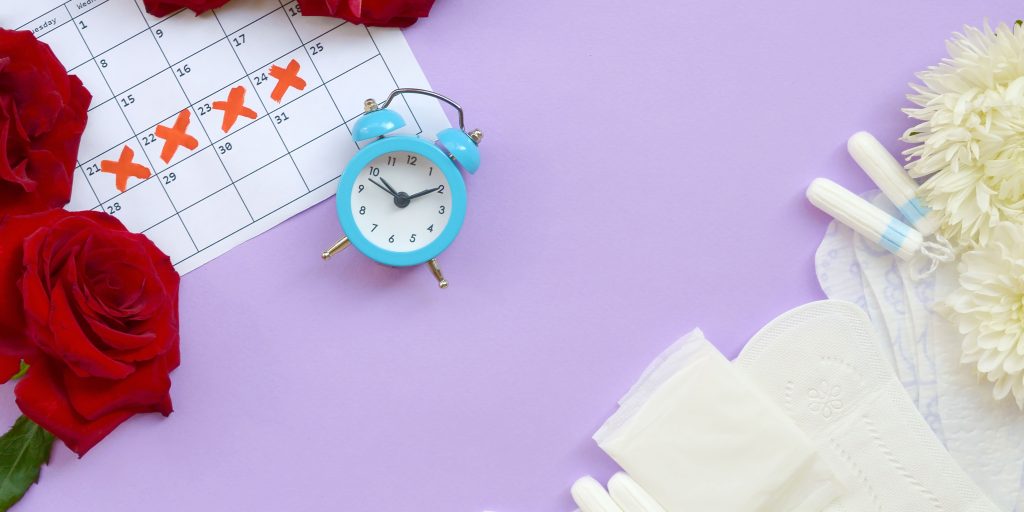

The most typical problem that women have during their period is discomfort. More than half of women who have periods experience pain during this biological process. Some women may only experience abdominal heaviness or a tugging sensation in the pelvic area. Other women have severe cramps that are distinct from premenstrual syndrome (PMS) pain. But there are some opportunities to make this process less painful and even beneficial.
Since most women don’t physically see any good thing about periods, do they really have a reason to at least appreciate it? Every time periods became a discussion point; every woman rolled their eyes. While there are plenty of reasons not to like the cycle, not all about it is negative!
And to top it all off, during this painful time of every month, women find themselves spending more money. There are several products that help women get through this nightmare that they are probably familiar with. This includes intimate wash, pads, tampons, and even period underwear for a leakproof day!
It may be frustrating for every woman, and they perceive it as a burden and don’t usually give it high priority. But did you know that the products that they believe help during this time actually end up being the real burden?
The vagina is an organ that can clean itself. Using conventional soap or even specific cosmetic items for intimate hygiene can disturb the area’s natural flora and can damage the natural pH balance which could lead to a yeast infection or bacterial vaginosis. Healthcare professionals advise cleansing the genital area with warm water only.
According to a The Times article, over the past three years, a lot of menstrual products including tampons, pads and even period underwear have been contaminated with PFAS, also known as “forever chemicals”. These chemicals help the material become more absorbent and in the case of period underwear, more stain resistant.
Since about the 1950s, a huge and intricate class of synthetic compounds known as per- and polyfluoroalkyl substances (PFAS) have been used in consumer items all over the world. These chemicals can be found everywhere: tap water, packaging materials, household cleaning products, make-up, shampoo, and other personal care products. Humans are most commonly exposed to these substances through inhaling PFAS-contaminated air, using PFAS-containing items, or ingesting contaminated water or food. According to human research, exposure to specific PFAS at high concentrations may cause the following:
Since the vaginal area is extremely vascularized and more susceptible to pollutants, the amounts discovered in feminine hygiene products are frequently much greater than those allowed in tap water. Although they are not consumed like water, they are nonetheless potentially just as harmful. What makes it worrisome is that compared to other items mentioned above, menstrual products have close contact with the genital area and are at the same time advertised as “natural” or “organic”. The problem here is that sometimes even the companies themselves are unaware of the use of PFAS in their manufacturing process; the chemicals appear to be utilized in the production of the raw materials that the companies acquire from their suppliers.
Menstrual period itself is a burden but we should always see it as an important part of our reproductive health. Be responsible and take charge of it. Choose the products that you believe will be beneficial to you. Try out different methods and products that provide you with the exact level of protection you need. You can carry on with your day as normal when you feel tidy, safe, and at ease!
Need some help? Five Journeys offers services for women’s health as well! Check our offerings now!
Sources:
‘We don’t need to bleed’: why many women are giving up on periods | Women | The Guardian
Feminine Hygiene Products: A Complete Overview (flo.health)
8 Surprising Benefits of Getting Your Period (theadventurouswriter.com)
Perfluoroalkyl and Polyfluoroalkyl Substances (PFAS) (nih.gov)
Talking to Your Doctor about Exposure to PFAS | ATSDR (cdc.gov)
© Copyright 2024 Five Journeys®. All rights reserved.


$85-$225 depending on insurance coverage.


At Home
Urine
$699
Fully covered by Medicare. Repeat test prices $249


This test evaluates the genetic profile for multiple health indicators. Click here for more information.
At home
Blood Spot


This company can test for lyme, babesia, bartonella and additional tick-borne illnesses. Click here for more information.
Blood
around $1600 (depends on panel selected)






Blood work for blood count, urinalysis and vitamin levels.
At any Quest Diagnostics Location
Blood
You often have to fast for these tests-please check your providers notes.




This test evaluates many measures including micronutrients, antioxidants, minerals, detox, overview of gut function, omegas and toxic exposure. Click here for more information.
At home.
Urine


This test evaluates the gut function and indicates microbiome balance, overgrowth, infection, inflammation, parasites and digestive efficacy. Click here for more information.
$179-$425 depending on insurance coverage.




Blood


This test evaluates the presence of potentially harmful heavy metals stored in the body. Click here for more information.
Testing: $79 x2 paid to Doctor’s Data
DMSA: $38 paid to Johnson’s Compounding Pharmacy


No insurance coverage


This test is designed to look at food sensitivities (IgG immune responses). It is available in both a 99 or 184 panel. Click here for more information.
Blood
$129-238